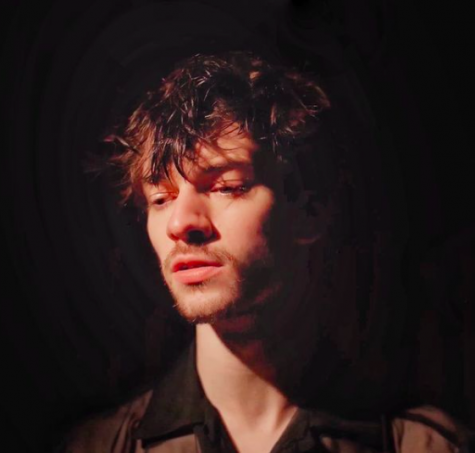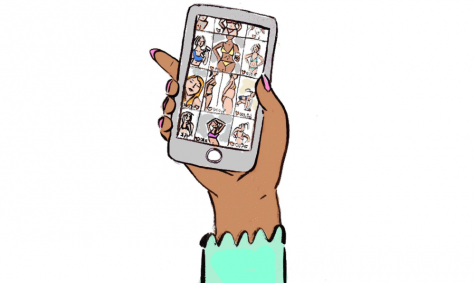Back to Say Hi(gh)
During an afternoon recess in 2003, I walked into Mr.Ivett’s secondary school principal’s office and declared that I, a year 7 student with no plan or experience, wanted to start a school newspaper. Incredibly, Mr. Ivett agreed to support the idea, and shortly after, the Monthly Moo was born. To my chagrin, the editor-in-chief position went to someone older, but in hindsight, that makes sense. I hadn’t even learned about compound sentences yet. And while the Monthly Moo fizzled out after several editions, the whole process was a meaningful learning experience, one which I leveraged when I helped start The High with classmates years later. The little kid who walked into the principal’s office left an impression, though, because Mr.Ivett mentioned it in my graduation speech when I received my diploma in 2010.
Daniel Riband (Class of 2010)
My best memories at ISL always happened in the computer lab of the old building. This was where my year congregated after-school to work, which ended up being a social club. It became the part of the day that I looked the most forward to. Some days we would lose track of time, staying as late as 9pm, and teachers would have to ask us to go home. On Thursdays, we’d have ‘The High’ meetings there, where I have great memories of ordering pizza, while editing and coming up with witty titles late into the night.
Many thanks,
Jocelyn (Class of 2016)
I’ll keep it simple: I love The High. There has never been a day when I have stepped into the newsroom and not left it feeling better than when I entered. It was a haven for me, a world all of its own, brighter and warmer and kinder than the one I came from. This paper and its team were a part of me then, and always will be. To my dear journalists, those who knew me and those I will never know: I hope that, more than anything else, The High can be that for you, too.
Suhasini Mehra (class of 2020)
At a school where the only constant is change, The High was my anchor. My weeks at ISL were joined together not by Monday mornings but Thursday afternoons, where in the newsroom you’d find an eclectic bunch of Years 10 through 13 – by the pretence of good journalism – gossiping about everything under the sun. Then, once a month, and often under the moon, the stories that made up our school experience came together in print. Today, it’s such a wonderful gift to be able to read The High, past and present editions, and reconnect with a community that I remember so fondly.
All the best,
Edward
Attending ISL is something I remember incredibly fondly, and the lessons I learned there, both inside and outside of the classroom, continue to propel me in my everyday life; even now, more than ten years after graduating. As one of the co-founders of The High in 2008, it fills me with pride and joy to know that the newspaper lives on. I wish all of the staff journalists, editors, photographers, and multimedia experts on The High all of the best for this exciting edition of the newspaper. I look forward to reading your professional bi-lines in the future!
Thank you again for including me, I’m truly honored!
My best,
Renee
I joined The High as a fresh-faced year 10 student who had a budding interest in journalism. At the time, I still felt new at ISL and I was trying to find my place not only in this school, but in the world. Little did I know that The High would play such an integral part in my journey. Whenever I was in the newsroom, I always had a certain giddy feeling accompanying me – there was a real sense that, if we took the chance, we had the power to accomplish great things with our ideas.
The High always demanded a lot from me, not only in the logistical sense – try managing a newspaper alongside life and the IB, but also in a spiritual sense.
The topics we discuss within the newsroom are not always easy, and since we are a newspaper, seeking and reporting the truth with unflinching honesty is an integral part of the job.
A commitment to the truth can be challenging, especially if you reside in the community you write about. Initially I used to question myself – how far should I go, is it too much?
Looking back, I wanted to address controversial topics, but the fear of criticism remained and often held me back. Of course, honest criticism is a necessary part of public discourse and keeps us all accountable, but that does not negate its ability to intimidate.
My experience was not unique, as I later had the same conversation with several younger writers. What I learnt, and eventually shared with these writers, is that as long as I was being honest in my opinion and judgment, I was not doing anything wrong. In fact, certain issues are too important to remain quiet about, and it would actually be wrong and irresponsible to not use the platform The High offers to discuss these issues. Moreover, I would never have to face the criticism alone as I would always have a community to support me – The High.
My time at The High was eventful, but perhaps no period was as transformative in nature as the pandemic.
COVID-19 brought a lot of baggage with it. There was a real sense of loss – of people we lost, of time we lost, of experiences we lost.
While most of my normal life had halted to a stop, The High continued on, and it morphed into a space to sort through our current reality – we were living through history after all. Our meetings during this period always left me with a sense of agency that led me to believe that we could be doing more within our community. Slowly, I found myself being a little more bold in pushing the boundaries of what I was willing to write about. It was not just me, however, I sensed that the paper as a whole was changing.
Some of the changes were more obvious, like our meetings were on Zoom, and once we were able to return back to in-person learning, the snacks that accompanied our meetings were nowhere to be seen.
Other changes, however, were far more fundamental in nature. The kinds of stories we wanted to tell were changing. We had a lot of great ideas, but, like any dynamic organization, we were outgrowing the tools we used to tell these stories. We tried to adapt by introducing new mediums to tell stories through, but without a clear vision of what we were trying to achieve, our content felt scattered.
New in my role as Editor-in-Chief, I wanted to take the opportunity to streamline our content and make it more accessible for our readers. Thus, I decided to undertake the task of establishing The High’s online presence. The project involved a lot of moving parts and was time-consuming, but it was exhilarating to work on re-defining what our paper brings to the table.
You may question how consequential the things we write about are in the ‘real world’, we are after all, just a highschool newspaper.
This, however, is dismissive of the work that goes into producing an issue of The High and the influence it can have. Change starts small, and once it starts, it is very hard to destroy its momentum.
Year after year, people show up to the newsroom, eager to write. This could be due to a lot of reasons, including CAS requirements, but the kind of dedication I have seen in the newsroom goes beyond any requirement. I think it stems from the subconscious understanding that what we produce matters – it has the ability to spark change.
While the newsroom will inevitably change in location and size over time, I hope that it never loses its spirit of seeking answers to difficult questions. I also hope that The High remains a place that is open and welcoming to all in a world that does not always promise the same.
Lastly, I hope that, even when dealing with difficult topics, the newsroom remains a place that people look forward to spending time in, because it holds a community of people that are interested in exploring the world around them and understanding their influence in it.
My highschool experience at ISL would not be complete without The High. It was a place that pushed me to break out of my comfort zone and find my voice; I transformed during my time with the paper.
The paper has come a long way in its last 100 issues, and I can only imagine where it goes in the next 100.
To all the writers, videographers, podcasters, illustrators, and editors, current and future, seize the opportunity this paper offers, and make your mark in this world. You each have something unique and important to say, if you will allow yourself to.
Here’s to 100 issues of The High!
Khwaish, class of 2021


